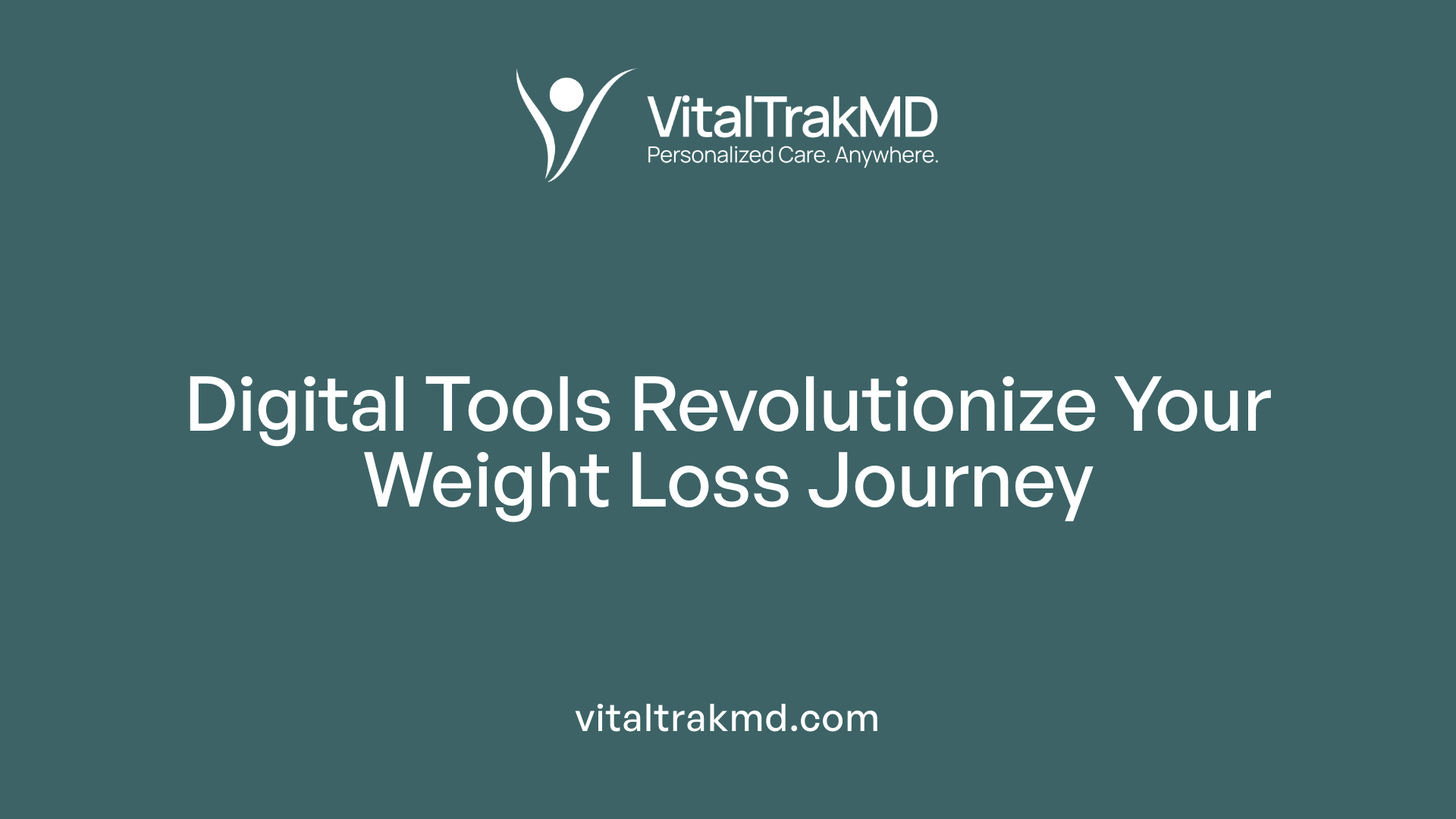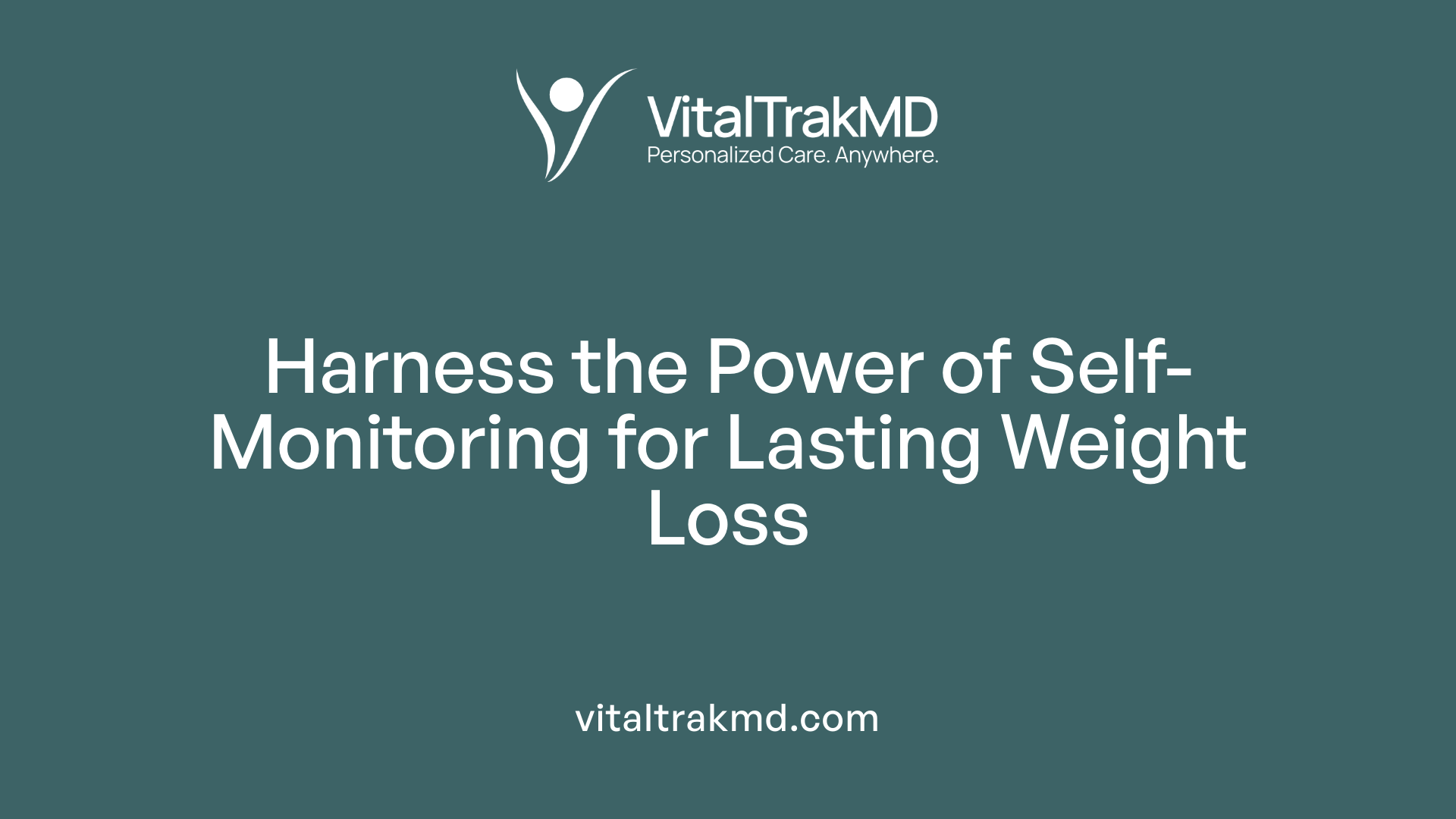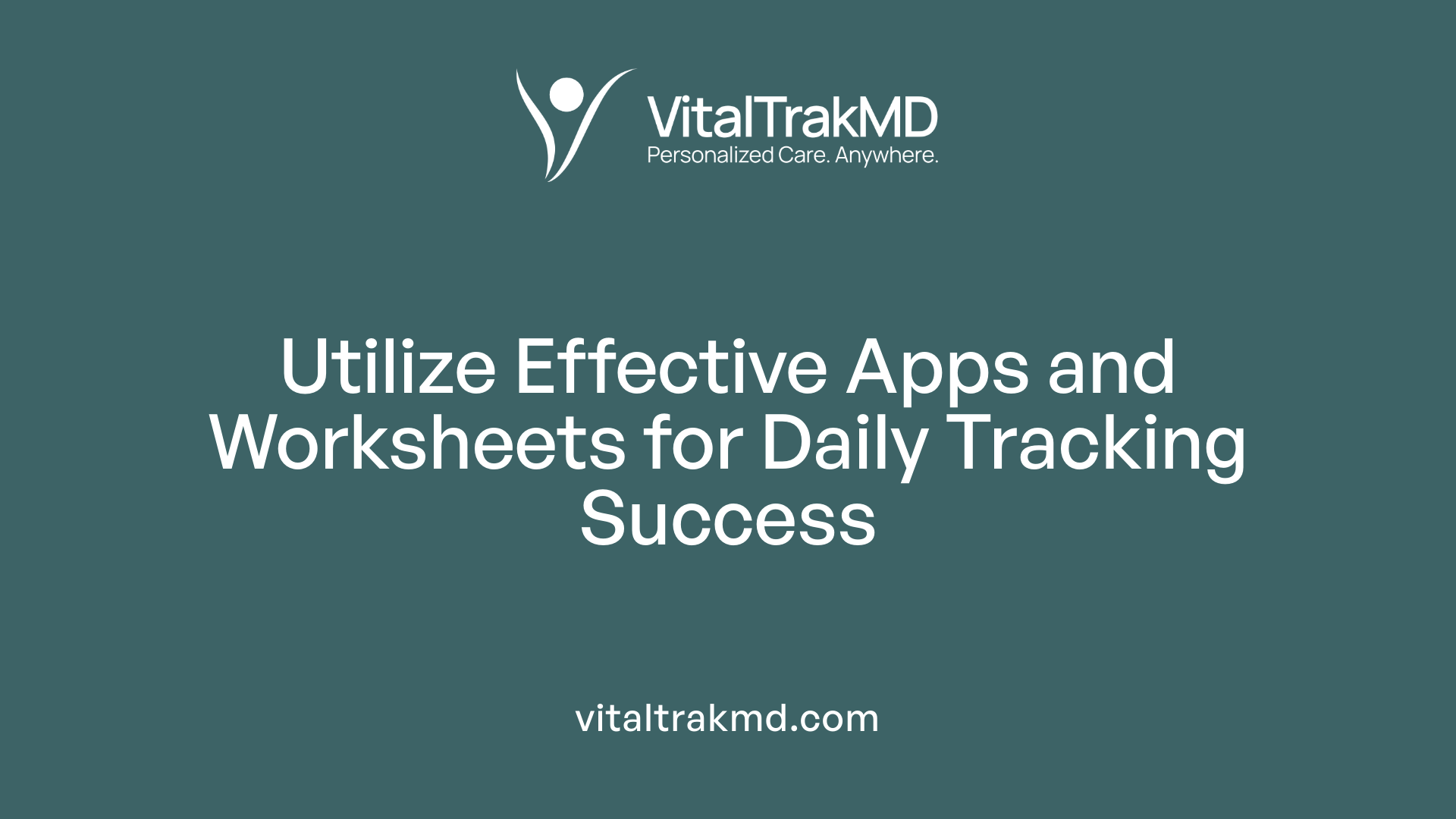Supporting Patients With Practical Tools to Track Daily Activity and Diet

Empowering Health Through Daily Tracking
Sustainable weight loss and wellness require more than just motivation—they demand tools and strategies that support consistent, informed choices. Practical tools that help patients track their daily activity and diet have become vital allies in achieving and maintaining healthier lifestyles. From smartphone apps to wearable devices, digital self-monitoring is revolutionizing the way individuals engage with their health, making daily tracking accessible, motivating, and effective.
The Power of Digital Health Tools in Weight Loss Programs

How Do Digital Tools Enhance Engagement and Weight Loss?
Digital health tools such as diet-tracking apps, smartwatches, and digital scales play a pivotal role in increasing engagement with weight loss programs. By enabling users to digitally monitor behaviors like calorie intake, physical activity, and weight, these tools help facilitate more effective weight loss. Studies analyzing over 40 reports from 2009 to 2019 reveal that participants who consistently tracked their behaviors lost more pounds than those who did not. These tools enhance calorie counting by automating calculations and provide motivational visual cues and social networking features, which encourage ongoing participation—even without in-person coaching.
What Types of Digital Health Tools Are Commonly Used?
There is a variety of digital tools designed to support weight management:
- Comprehensive Health Platforms: Apple Health and Google Fit provide all-in-one tracking for steps, sleep, medications, and heart health while integrating with other apps and devices.
- Fitness Tracking Apps: Strava caters to running, cycling, and walking, while Pedometer focuses on step counting to promote consistent physical activity.
- Wearable Devices: Gadgets like the Apple Watch, Garmin Watch, and Oura Ring monitor activity, heart rate, sleep quality, and stress indicators for holistic health insights.
- Food Tracking Apps: Programs such as MyFitnessPal, Cronometer, and Lose It! enable detailed logging of food intake, monitoring of macros and micronutrients, and support personalized weight loss goals.
How Does Tracking Different Behaviors Support Weight Loss?
Tracking a range of behaviors—weight, diet, physical activity, and sleep—supports weight loss by:
- Increasing accountability and motivation through visible progress and reminders.
- Revealing patterns such as emotional eating when recording food types, amounts, timing, and emotional context.
- Helping identify barriers to progress and allows informed goal setting.
- Highlighting connections between exercise, mood, and weight changes.
- Allowing proactive responses to small weight fluctuations by regular, weekly weigh-ins.
- Improving sleep hygiene, which is closely linked to effective weight management.
What Are Effective Wellness Programs for Sustainable Weight Loss?
The most effective wellness programs integrate continuous self-monitoring using digital tools that facilitate regular weigh-ins, food and activity logging, and social support mechanisms. This approach builds motivation and accountability while automating calorie and nutrient tracking, making the process less burdensome. Real-time feedback helps users make smarter health choices, set realistic goals, and maintain gradual, lasting lifestyle changes. Importantly, these digital resources provide structure, clarity, and celebrate successes to support a positive and realistic approach to weight management.
How Self-Monitoring Tools Foster Accountability and Motivation

Role of self-monitoring in recognizing behavior patterns
Self-monitoring tools play a vital role in helping individuals become aware of their behaviors that influence weight gain or loss. By tracking food and beverage intake, physical activity, weight, and even sleep patterns, users can identify trends such as emotional eating or inactivity that might otherwise go unnoticed. This awareness enables proactive adjustments and goal setting, improving the effectiveness of weight management efforts.
Use of food logs and activity diaries
Food logs that record details like type, amount, time, and emotional context of eating provide insight into habits and triggers. Similarly, activity diaries capturing exercise type, duration, and mood before and after workouts reveal how physical movement impacts well-being and weight. Regular weighing, recommended once a week, offers timely alerts on small weight changes, encouraging users to make manageable changes early.
Impact of visual cues and social networking features in apps
Digital health tools incorporate visual feedback and social networking components that boost motivation. Visual cues such as progress charts and reward systems help users track their journey clearly and stay motivated. Social features encourage sharing achievements and challenges with a community, fostering accountability and making consistent monitoring feel supported and rewarding. This combination sustains engagement even without in-person coaching, proving effective for independent weight loss maintenance.
Integrating Mental Wellness in Weight Loss and Care Programs

What role does mental wellness play in successful weight loss and care programs?
Mental wellness significantly shapes motivation and emotional regulation, which are crucial for maintaining commitment to weight loss efforts. Digital self-monitoring tools that include logging the emotional context of food intake help users identify patterns such as emotional eating. Understanding these emotional triggers enables users to manage eating behaviors more effectively and prevent setbacks.
Addressing emotional eating through tracking food and mood
Maintaining a food journal that records not just the type and amount of food but also the mood preceding and following eating episodes can uncover emotional eating tendencies. Recognizing these patterns empowers individuals and caregivers to intervene appropriately, providing strategies to cope with stress or emotional distress without relying on food.
Benefits of psychosocial support in care programs
Incorporating mental health support into weight loss and care programs fosters resilience by addressing psychological barriers alongside physical health goals. Programs that blend behavioral health education, emotional support worksheets, and goal-setting encourage a positive mindset and adherence to healthy lifestyle choices. Celebrating successes and maintaining realistic expectations help sustain motivation and improve outcomes in weight management.
Supporting Long-Term Weight Management with Care Programs and Digital Tools

How do care programs support individuals in maintaining weight loss?
Care programs play a crucial role in helping individuals sustain their weight loss by providing ongoing guidance and education. They often include structured support groups or family-centered approaches, which create a community-focused atmosphere that encourages accountability and motivation.
Utilizing digital tools for sustained engagement
Digital health tools, such as diet-tracking apps, wearables like Apple Watch or Garmin Watch, and platforms like Apple Health or Google Fit, increase engagement by making self-monitoring easier and more interactive. These tools automate tasks such as calorie counting and nutrient tracking, deliver visual progress cues, and offer social network features that motivate users to consistently monitor behaviors like diet, physical activity, and sleep. This sustained engagement helps users stay on track and better manage their health over time.
Family and community-focused approaches
Care programs often extend their focus beyond the individual to include family members, helping both children and parents monitor daily physical activities and weight management together. This collective approach fosters shared responsibility and support, which can increase motivation and improve outcomes. Additionally, community educational resources such as handouts, worksheets, and goal-setting tools provide structured guidance that complements digital tool use.
Together, care programs and digital technologies create a comprehensive system for weight management that supports individuals in making consistent, informed decisions and maintaining their progress long term.
Practical Resources and Tools for Effective Daily Tracking

Popular apps and wearable devices functionality
Digital health tools simplify tracking diet and physical activity, boosting user engagement and weight loss success. Apps like MyFitnessPal, Cronometer, and Lose It! help log food intake while automatically calculating calories and nutrients.
Wearable devices such as the Apple Watch, Garmin Watch, and Oura Ring monitor activity levels, sleep patterns, heart rate, and stress, offering a comprehensive view of health metrics. Platforms like Apple Health and Google Fit integrate data from multiple sources, tracking steps, sleep, medications, and heart health to encourage consistent wellness habits.
Fitness tracking apps like Strava specialize in running, cycling, and walking, while Pedometer focuses on step counting, aiding users in maintaining daily activity.
Educational materials and worksheets for weight management
To support structured weight management, various websites provide downloadable educational handouts and worksheets covering nutrition, behavioral health, physical activity, and sleep. These resources include food logs, goal-setting templates, reward charts, and activity recommendations that can be incorporated into wellness programs. They assist in identifying eating patterns, setting realistic goals, and maintaining motivation.
Benefits of comprehensive tracking including sleep and stress
Beyond monitoring diet and exercise, tracking sleep and stress indicators is crucial for effective weight management. Adequate sleep supports metabolic health, and tracking patterns can highlight issues impacting weight. Stress levels, detected through wearable metrics, influence eating behaviors and recovery.
Regular monitoring of food intake, physical activity, weight, and sleep enhances accountability and motivation. It provides clarity in health choices, helps identify barriers, and enables users to proactively adjust behaviors. Celebrating successes while maintaining a positive mindset makes the weight loss journey sustainable and empowering.
Harnessing Tracking Tools for Healthier Lives
Employing practical tools to track daily activity and diet empowers patients to take charge of their health journeys with clarity and confidence. Digital health tools paired with structured care programs create a synergistic effect, enhancing motivation, accountability, and behavioral insights. Addressing both physical and mental wellness through comprehensive monitoring fosters sustainable weight management and overall well-being. As technology advances, access to personalized, user-friendly tracking solutions becomes an increasingly pivotal factor in supporting lasting lifestyle transformations.
References
- Digital health tracking tools help individuals lose weight, study ...
- The Best Wellness Tracking Tools for Busy Adults
- Self-Monitoring Tools and Handouts
- Use these tools to help keep weight on track
- Association of changes in mental health with weight loss ...
- The Psychological Side of Weight Loss
- The Science Behind Mindset and Weight Loss
- How losing weight can impact mental health
- Choosing a Safe & Successful Weight-loss Program - NIDDK
Recent articles
Want to Feel Better and Live Healthier?
Join hundreds of patients taking control of their health with personalized care that fits their life – not the other way around.
Rated 4.8/5 by 32+ customers







